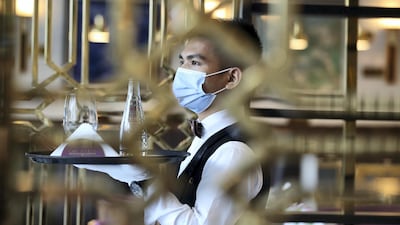The UAE recorded 1,313 Covid-19 cases on Wednesday on one of its largest single testing day to date.
A further 789 patients were given the all-clear as the recovery tally climbed to 161,084.
Two more patients died, bringing the death toll in the Emirates to 598.
Officials have confirmed 180,150 infections since the outbreak began.
The number of active cases in the country rose to 18,468.
The latest cases were identified as a result of 149,798 daily tests.
It is the second day in a row that testing numbers exceeded 140,000.
The largest number of tests in a single day was on November 8, when 154,882 tests were conducted.
Mass screening is central to UAE efforts to limit the spread of the virus.
More than 17.7 million tests have been carried out nationwide to date.
Authorities have steadily stepped up testing rates during the pandemic, which has spanned much of the year.
Only 75 tests were carried out when the UAE reported its first four cases of Covid-19 on January 29.
As the virus rapidly spread around the globe, leading to bans on air travel and the temporary closure of offices, schools, places of worship and leisure facilities, health facilities were quickly equipped to meet a growing need for tens of thousands of tests a day.
In May, daily testing rates hovered between 25,000 and 50,000.
In September, the UAE exceeded 100,000 daily tests for the first time.
In the months since, daily testing figures have regularly exceeded 100,000.
Teachers, taxi drivers, retail workers and emergency services personnel are among the many who are tested every week or two to ensure they are clear of the virus.
The UAE has greatly increased its testing capacity with drive-through screening centres, major programmes in densely populated neighbourhoods and even the introduction of PCR testing in malls.
The cost of PCR tests has been gradually reduced in recent months, from a typical price of Dh370 to as little as Dh85 in health facilities operated by Seha.









